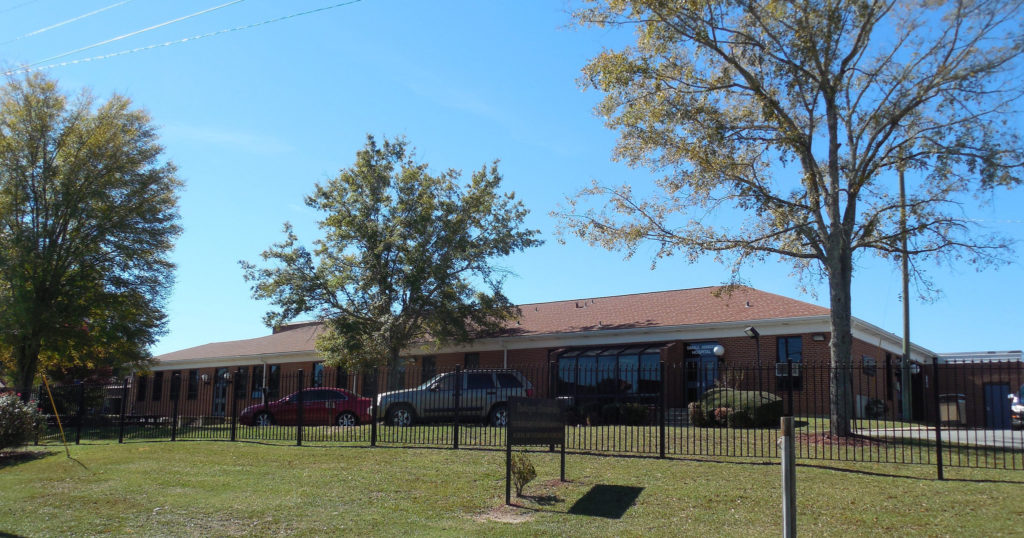Tuskegee University Vet School decries ‘false accusations’

In a story published earlier this month, Alabama Today covered the concerns of Stop Pound Seizure In Alabama, a Facebook group dedicated to change pound seizure laws. The article was in response to a recent effort by the group to bring attention to and stop pound seizures from the Russell County-Phenix City Animal Shelter to Tuskegee University. The University is now pushing back to get their side of the story out to the public. This is not the first time the University has responded to the accusations surrounding their practices. In March of this year they released a detailed statement addressing the public’s concerns. Among the claims animal activists have made is that Tuskegee University Vet School says is false is that it receives “hundreds” of live animals from the Russell County-Phenix City Animal Shelter each year, so that students can practice various surgeries on them and then kill them. The membership of the Tuskegee University Institutional Animal Care and Use Committee told Alabama Today via an email statement, they do in fact receive animals from the shelter, “the relationship is not a secret.” “The animals obtained are abandoned according to Alabama Law 3-1-13. The Russell County/Phenix City shelter provides public notice of strays, abandoned animals and surrenders on its website. Pictures as well as intake information are provided for each animal, with the shelter’s hopes of reuniting owners with their pets,” the Committee explained. “Contrary to the information provided in the article, Tuskegee University receives far less than hundreds of these animals per year to which the article alluded.” No number has been confirmed by the shelter or the university. The Alabama statute referenced by the university specifically states: Section 3-1-13 Right of officers, etc., of humane societies to take charge of and care for neglected or abused animals; written notice to owner from whom animal taken; lien for expenses for care and keeping of animal. Any duly authorized officer or employee of a recognized humane society shall have the right to take charge of any animal which is sick or disabled due to neglect or is being cruelly treated or abused and to provide care for such animal until it is deemed to be in suitable condition to be returned to its owner or to the person from whose custody such animal was taken. The officer so taking such animal shall at the time of taking the animal give written notice to the owner or person from whose custody it was taken. The necessary expenses incurred for the care and keeping of the animal after such notice by the humane society shall be a lien thereon and, if the animal is not reclaimed within 10 days from the giving of such notice, the humane society may sell the animal to satisfy such lien. If the humane society determines that the animal cannot be sold, it may cause the animal to be otherwise disposed of. (Acts 1961, Ex. Sess., No. 84, p. 2001.) The Committee called the claims of “inside information” regarding the treatment of the animals by the activist group “false.” In their statement they say, “The ‘inside information’ stated in the article is false. For those animals the university does receive, university clinicians and students strictly follow the guidelines of the Animal Welfare Act, actively considering the alternatives, reduction, replacement and refinement during review of Animal Use protocols.” The claims against the university were that: Inside information from concerned individuals say the dogs are kept in poor conditions, no socialization or enrichment, fed only 1 cup of food per day, regardless of size (because they don’t live long enough to starve to death), and given no medical care for any injuries they may arrive with or develop while being held. These helpless dogs, family pets, are already terror-stricken from their time at the pound, then hauled to Tuskegee in their dog trailer and stuffed into cages where the smells and sounds of death surround them. Then they are cut on and killed. According to the Committee, all animals are kept according to U.S. Dept. of Agriculture’s Animal Plant Health Inspection Service/Office of Laboratory Animal Welfare (USDA/APHIS/OLAW) regulations, which cover transportation, handling, and socialization, feeding, health care and housing. The Committee further explained how the Tuskegee University Institutional Animal Care and Use Committee (IACUC), which is under strict supervision from USDA, reviews animal use protocols and stringently enforces those protocols that are in use. And when it comes to the accusations that their students are “killing the animals”, the Committee explained, “animals are not killed they are humanely euthanized while under general anesthesia.” The university’s March statement covered this more in depth saying: On occasion, the college partners with area impound facilities to euthanize stray, abandoned and runaway animals that have exceeded the holding periods these facilities provide for owners to claim these animals. Alabama Code 3-7A-8 authorizes these facilities to destroy or dispose of these impounded animals when not claimed by their owners within seven days. When these animal-holding facilities find it necessary to euthanize its unclaimed, impounded animals, they contact the college, which in turn carries out the scheduled euthanasia at no charge to the facility or compensation to the university. These facilities attest to making every effort to connect these animals with their owners, which includes scanning for microchips (if present) or any identifying tattoos or marks. The unfortunate fact is that every year in the U.S., there are over 6.5 million dogs and cats in animal shelters. Of this number, over 65 percent are euthanized after being held for seven to 10 days without being adopted or finding a new owner. As part of the college’s agreements with animal-holding facilities, veterinary medicine students and faculty socialize, feed and care for these animals prior to their scheduled euthanasia. Animals are fully anesthetized for any teaching procedure that is part of the students’ clinical experience — all the while under the direct supervision of the college’s surgical faculty. Accusation against vet student for animal-related crime The veterinary school has found itself further under fire for alleged
Animal activists fight what they call ‘inhumane practices’ by local animal shelters working with Tuskegee University

An Alabama Facebook group is creating waves in the animal rights community. Their main focus: stopping pound seizures from the Russell County-Phenix City Animal Shelter to Tuskegee University. According to the American Anti-Vivisection Society, pound seizure is the “sale or release of dogs and cats from a pound or shelter to a research, testing, or educational facility.” “Beginning in the 1940s, many state laws were passed that required pounds and shelters to release dogs and cats to research laboratories. Though these pound seizure laws were enacted in the 1940s and 1950s, some of them still exist today,” the group says. The Humane Society of the United States shows that Alabama is one of those states. Stop Pound Seizure In Alabama, a Facebook group dedicated to changing these laws in the Yellowhammer State has recently shed light onto one serial example of what they believe is an inhumane practice. According to the group, the Tuskegee University Vet school receives live animals from the Russell County-Phenix City Animal Shelter, so that students can practice various surgeries on them and then kill them. Tuskegee turns a blind eye to the more progressive vet schools which have moved to other ways for their practice surgery training. The taxpayer-funded pounds that Tuskegee obtains their victims from try to hide the relationship because they know it is shameful. Young, healthy, adoptable animals are given to Tuskegee by the hundreds every year. They admit to having a “contract” with the city/county but refuse to reveal the details. Inside information from concerned individuals say the dogs are kept in poor conditions, no socialization or enrichment, fed only 1 cup of food per day, regardless of size (because they don’t live long enough to starve to death), and given no medical care for any injuries they may arrive with or develop while being held. These helpless dogs, family pets, are already terror-stricken from their time at the pound, then hauled to Tuskegee in their dog trailer and stuffed into cages where the smells and sounds of death surround them. Then they are cut on and killed. According to the shelter’s monthly report, 61 animals were transferred in May, while 45 were transferred in June both reports indicate that a list of other agencies the animals were transferred to is supposed to be attached to the report. But neither report actually has a list. Meanwhile, the Tuskegee University Vet school has an Animal Health and Safety Plan, in which clear guidelines are set in order to ensure that animals at the Veterinary Medical Teaching Hospital receive “appropriate care and support.” The plan includes guidelines for the following: Feeding—Animals are fed palatable and nutritionally adequate food daily or according to their particular needs. Watering—Animals have access to fresh, potable, uncontaminated drinking water. Watering devices are examined routinely to ensure their proper operation. When water bottles are used, they are appropriately sanitized. Veterinary Care and Euthanasia— A program of preventive and emergency medicine has been established by and supervised by a veterinarian. Sick or injured animals receive veterinary care promptly. Animals are euthanatized when necessary only by qualified personnel, in accordance with recommendations in the current report of the AVMA’s Guidelines on Euthanasia, and as permitted by law. But at least one student has been accused of animals related crimes while attending the school. In April, Fallon Blackwood was accused of deceiving several horse owners. “She was getting the horses and telling the owners they were going to nice pasture land and would happily live their days out. What she was doing was taking the horses to slaughter,” Macon County Sheriff Andre Brunson told WTVM, in Columbus, Ga. “Slaughtered to potentially be made into dog food is what is believed to have happened to some of the horses that landed in Blackwood’s possession.” Blackwood currently faces criminal charges in North Carolina for her actions. Alabama Today attempted to contact both the Tuskegee University Vet school and the Russell County-Phenix City Animal Shelter, but neither had comments at time of publishing.


